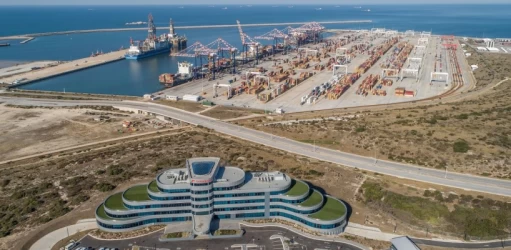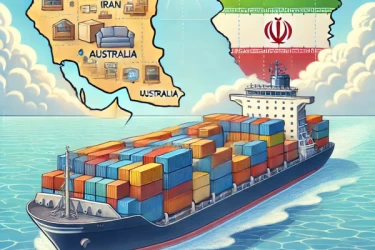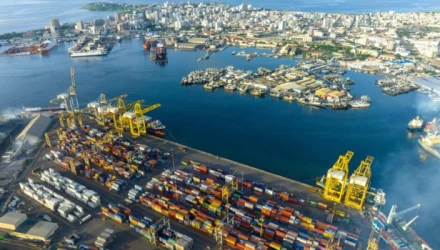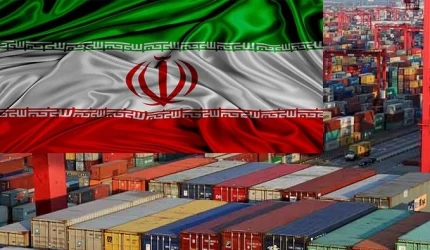Sea transportation of home appliances and furniture from Iran to Austria
When relocating internationally, particularly when moving from Iran to Austria, shipping household goods and furniture can be a complex process. Sea freight offers a cost-effective and reliable method for transporting personal belongings over long distances. This guide outlines the essential details about sea freight, including its benefits, processes, and tips for ensuring a smooth move from Iran to Austria.
1. Overview of Sea Freight
Sea freight is the process of transporting goods by sea using container ships. This method is ideal for large volumes of goods, such as household items and furniture, as it is more affordable than air freight for long-distance shipping. Sea freight services are widely used for international relocations because of their capacity to carry heavy and bulky items, such as sofas, beds, and appliances, without the high costs associated with air cargo.
2. Why Choose Sea Freight for Moving from Iran to Austria?
There are several reasons why sea freight is a preferred choice for transporting household goods and furniture internationally:
- Cost-effectiveness: Sea freight is typically less expensive than air freight, especially for large volumes of items.
- Large capacity: Shipping containers can accommodate a large number of items, from furniture to appliances.
- Safety of goods: With professional packing and containerization, your goods are secured during transit, reducing the risk of damage.
- Eco-friendly: Compared to air freight, sea freight has a lower carbon footprint per unit of goods transported.
3. Choosing the Right Shipping Method
There are different options when it comes to shipping goods via sea freight:
- Full Container Load (FCL): If you have a large volume of goods, FCL is the best option. You will rent an entire container for your shipment, offering full control over your items' safety and space.
- Less than Container Load (LCL): For smaller shipments, LCL allows you to share container space with other shipments. This is a more affordable option but may require more time due to consolidation.
4. Sea Freight Process for Household Goods and Furniture
The process of shipping household goods and furniture from Iran to Austria via sea freight typically involves the following steps:
Step 1: Preparation
- Inventory: Make a detailed list of all items to be shipped. This will help you determine the appropriate container size and ensure nothing is overlooked.
- Packing: Proper packing is crucial for protecting your items during transit. You may want to hire a professional packing service to ensure that your furniture, electronics, and other household goods are securely packed.
- Documentation: You will need to prepare the necessary documents, including:
- Passport and visa information (if applicable)
- Proof of residence in Austria
- Shipping invoice and receipt
- Customs documentation (for both Iran and Austria)
Step 2: Choosing a Freight Forwarder
A reliable freight forwarder is essential to ensure smooth shipping. Freight forwarders act as intermediaries between the shipper and the shipping company, managing the logistics and paperwork. They can help:
- Select the best shipping route
- Arrange for loading and unloading of the container
- Handle customs clearance in both Iran and Austria
- Offer insurance options for your goods
Step 3: Container Loading
Once the goods are packed, they are loaded into the container. Depending on the volume and the nature of the items, the container may be packed either in Iran or at a designated warehouse before being transported to the port.
Step 4: Shipping and Transit
The shipping company will arrange for the container to be transported by sea from Iran to Austria. The most common ports of departure in Iran are Bandar Abbas and Bushehr, while the main ports in Austria are located along the Danube River, such as the Port of Vienna. Shipping duration typically ranges from 20 to 30 days, depending on the specific route and weather conditions.
Step 5: Customs Clearance and Delivery
Upon arrival in Austria, the shipment must go through customs clearance, which involves inspection of the items and verification of the documents. Once cleared, your goods are ready for delivery to your new home. This can be arranged by your freight forwarder or the shipping company. They will coordinate the transportation from the port to your residence in Austria.
5. Important Considerations
- Customs Regulations: Both Iran and Austria have specific customs regulations for the importation of household goods. Be sure to familiarize yourself with the duties, taxes, and restrictions that apply to your items. You may need to provide proof of your move, such as a visa or work permit.
- Insurance: While sea freight is generally safe, it’s advisable to take out insurance for your household goods, especially valuable items like electronics or antiques. This protects your belongings in case of damage, theft, or loss during transit.
- Timing: Shipping by sea takes longer than air freight, so it’s essential to plan ahead. Make sure to factor in any potential delays, especially during peak shipping seasons.
6. Cost of Sea Freight from Iran to Austria
The cost of shipping household goods and furniture via sea freight can vary depending on several factors:
- Volume and Weight: The size and weight of your shipment play a significant role in determining the cost. Larger shipments will require bigger containers and incur higher shipping fees.
- Shipping Method: FCL is generally more expensive than LCL, but offers more flexibility for larger shipments.
- Insurance and Extra Services: If you opt for additional services such as packing, insurance, or door-to-door delivery, the cost will increase.
It is essential to obtain quotes from multiple shipping companies to compare prices and services.
7. Conclusion
Sea freight is a reliable and cost-effective option for moving household goods and furniture from Iran to Austria. With careful planning, proper packing, and the help of a professional freight forwarder, you can ensure that your items are safely and efficiently transported. Keep in mind the customs regulations, shipping timelines, and insurance options to guarantee a smooth relocation process.
If you have any specific questions or need further assistance, feel free to ask!











